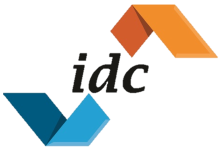Questions? Call +1 800 983 6192
A Proven Process for Inclusive Excellence
IDC® Credentialing Programs
Certification Mission
The purpose of the Institute for Diversity Certification (IDC)® certification program is to empower people to advance their knowledge as Diversity, Equity, and Inclusion practitioners. IDC’s mission is to provide fair, valid, and reliable assessments of their knowledge and skill and be innovative leaders in providing groundbreaking certifications in the DEI industry.
Certification Vision
IDC seeks to work with partners and organizations around the world to brand the CDP® and CDE® credentials as the industry standard for qualification in effective Diversity and Inclusion work. We aim to ensure that all certified practitioners demonstrate ethical behavior, achievement, excellence, and positive business outcomes.
Accelerating Competency-Based Leadership
In 2009, the Institute for Diversity Certification (IDC), Inc. engineered a proven, high-end specialty qualification process. Today, IDC’s advanced certification system provides employers with concrete skills, as well as subject matter expertise on global business issues relevant to culture, demographics, and the future of work.
Our up-to-date educational and research-based programs set the standard for Diversity, Equity and Inclusion (DEI) effectiveness. Both the Certified Diversity Executive (CDE)® and Certified Diversity Professional (CDP)® credentials are industry-recognized certifications that indicate elite DEI leadership. IDC relies on industry best practices for its professional qualification exams.
The purpose of the qualification system is to ensure that:
- Employers can hire employees and/or consultants with a high degree of certainty that the professional was well-trained and productive;
- Executives and supervisors are prepared to lead their enterprises into the next generation through advanced skills, new ideas, accountability, and risk management strategies;
- DEI leaders are equipped to deliver positive tangible results through effective Diversity initiatives;
- Organizations can avoid costly business risks arising from lawsuits, employee turnover, backlash, and waste; and
- Global communities can benefit from increased employment options for marginalized groups, holistic accessibility designs for aging and/or disabled population groups, new tax revenues from diverse suppliers, a wider array of local economic development and investment, and more stakeholder engagement opportunities.
DEI works best when everyone is included and can experience value. IDC's goal is to empower leaders, employers, and communities to unleash their full potential!
History of IDC's Certification Programs
IDC’s certification examination was created by a global panel of industry experts representing all aspects of DEI work. Our most recent exam questions were developed from a job task analysis (JTA) panel comprised of DEI subject matter experts (SMEs). Their work was validated with an industry survey and pilot test. As the foundation for any reliable and legally-defensible certification program, the JTA helps identify the core knowledge areas, critical work functions, and/or skills typically found across a representative sampling of current practitioners and/or job incumbent workers.
Throughout 2021 and 2022, the Institute for Diversity Certification's SMEs worked with psychometric and exam development experts from Ohio State University's Center on Education and Training for Employment (CETE) to improve the CDP® and CDE® assessment instruments, as well as ensure that IDC's approach complied with industry standards for accreditation.
CETE initiated the engagement with the DACUM process. DACUM (an acronym for developing a curriculum) is an effective method of analyzing jobs and occupations used worldwide for more than 40 years and in over 58 countries. This unique process offers components that successfully support job and occupational analysis for organizations like IDC, including community colleges, companies, government agencies, and professional associations.
Empirical results from IDC's job analysis provides DEI Certification Candidates and the public with a valid, reliable, fair, realistic, and legally defensible assessment that reflects the knowledge, skills, and abilities required to competently do a job that leads, manages, and/or supports effective Diversity, Equity, and Inclusion work. Our research-based approach also ensures that DEI leaders achieve expected performance outcomes.
Examination Standards Setting Process
IDC’s examination standards setting process ensures a fair and well-rounded assessment for the CDP® or CDE® credential. Here's a simplified breakdown:
- A panel of Subject Matter Experts (SMEs) judged how well each test question reflects the skills it's meant to assess. Low-quality or irrelevant questions were removed.
- The SME panel then estimated the difficulty of each question. They considered whether someone with the minimum required skills would likely answer it correctly.
- Based on these estimates, a passing score was determined for the knowledge exam. The goal was to find a score that most experts agreed reflects basic competence.
- A similar process was used to evaluate the Candidate Project portion of the assessment. Experts reviewed examples of projects and decided which ones showed the minimum acceptable level of skill.
Throughout this rigorous process, different methods were used to check and confirm the fairness of the difficulty level and passing score.
Ready to Reshape Your Organization?
We’re Here to Help!
Not sure where to start?
Need solutions customized to your unique needs?
Have other questions?
Contact Us
Institute for Diversity Certification (IDC)®
7230 Arbuckle Commons - Suite 134
Brownsburg, IN 46112
1-800-983-6192

Share On: